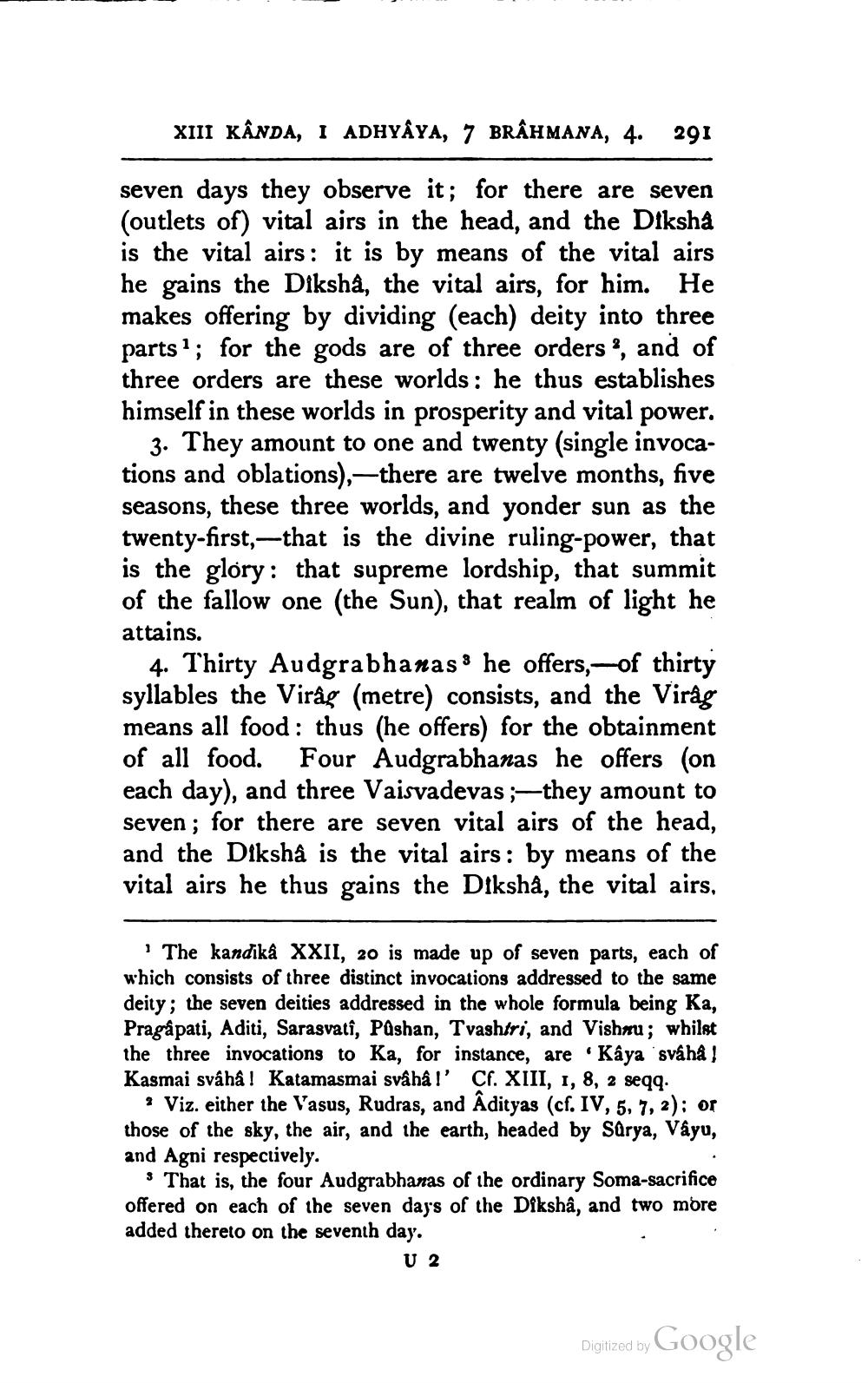________________
XIII KÂNDA, I ADHYAYA, 7 BRÂHMANA, 4. 291
seven days they observe it; for there are seven (outlets of) vital airs in the head, and the Diksha is the vital airs: it is by means of the vital airs he gains the Diksha, the vital airs, for him. He makes offering by dividing (each) deity into three parts?; for the gods are of three orders ?, and of three orders are these worlds: he thus establishes himself in these worlds in prosperity and vital power.
3. They amount to one and twenty (single invocations and oblations),-there are twelve months, five seasons, these three worlds, and yonder sun as the twenty-first,—that is the divine ruling-power, that is the glory: that supreme lordship, that summit of the fallow one (the Sun), that realm of light he attains.
4. Thirty Audgrabhanas: he offers -of thirty syllables the Virág (metre) consists, and the Virág means all food : thus (he offers) for the obtainment of all food. Four Audgrabhanas he offers (on each day), and three Vaisvadevas;—they amount to seven; for there are seven vital airs of the head, and the Diksha is the vital airs : by means of the vital airs he thus gains the Dikshå, the vital airs,
The kandika XXII, 20 is made up of seven parts, each of which consists of three distinct invocations addressed to the same deity; the seven deities addressed in the whole formula being Ka, Pragậpati, Aditi, Sarasvati, Pashan, Tvashtri, and Vishnu; whilst the three invocations to Ka, for instance, are Kaya 'sváhå Kasmai svâhâ ! Katamasmai svâhâ l' Cf. XIII, 1, 8, 2 seqq.
? Viz. either the Vasus, Rudras, and Adityas (cf. IV, 5, 7, 2); or those of the sky, the air, and the earth, headed by Surya, Váyu, and Agni respectively.
* That is, the four Audgrabhanas of the ordinary Soma-sacrifice offered on each of the seven days of the Dikshâ, and two more added thereto on the seventh day.
U 2
Digitized by Google




